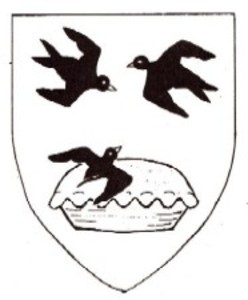Soup of Old Peas*

| Categories: | Soup 14th Century French |
| Original Source: | Le Menagier de Paris |
| Secondary Source: | Janet Hinson translation |
| Cook: | Marian of Edwinstowe |
| Meeting Date: | 2005-01-16 |
{Comments in brackets are mine. --Marian}
And first a SOUP of OLD PEAS. It is appropriate to shell them, and to find out from the people the place the nature of the peas of the area (for commonly peas do not cook well in well-water: and in other places they cook well in spring-water and in river water, as in Paris, and in other places, they do not cook at all in spring-water, as at Besiers) and this known, it is appropriate to wash them in a pan with warm water, then put in a pot with warm water on the fire, and boil them until they burst. {This being Dorchester, peas were cooked in tap water.}
Then separate the liquid from the solid, and put the liquid aside, then fill the pea-pot with warm water and put on the fire and separate a second time, if you wish to have more liquid: and then put back without water, for they will produce enough. and boil in it; and it is not appropriate to put the spoon in the pot after the separating, but shake the pot and the peas together, and little by little feed them with warm water or a little more than warm but no cold, and boil and cook completely before you add anything except hot water, be it meat or anything else: do not add salt, nor bacon, nor absolutely anything whatsoever until they are fully cooked. You can add bacon water or meat stock, but you must not add any salt, nor even the tip of the spoon, until they are well cooked; you can always stir them by moving the whole pot. {These complicated instructions boil down to (a) don't add anything but warm/hot water; and (b) the pottage should be "shaken, not stirred."}
On meat days... {Since we are currently researching Lenten dishes, this paragraph is omitted here.}
On a fish day, when the peas are cooked, you should have onions which have been cooked as long as the peas in a pot and like the bacon cooked separately in another pot {on a meat day}, and as with the bacon water you may nourish and serve the peas, in the same way; on fish days, when you have put your peas on the fire in a pot, you must put aside your minced onions in another pot, and with onion water serve and nourish the peas; and when all is cooked fry the onions and put half of them in the peas, and the other half in the liquid from the peas of which I spoke above, and then add salt, And if on this fish day or in Lent there is salted whale-meat, you must do with the whale-meat as with the bacon on a meat day. {Whale-meat omitted for obvious reasons.}
Ingredients
| 1 lb. | whole dried peas, not split peas |
| 1 lb. | onions, peeled and sliced |
| 4 Tbs. | olive oil |
| 1 tsp. | salt |
Steps
- Soak peas in warm water for an hour or more. Pour off water. Add fresh warm water, enough to cover peas twice over, 4-5 cups, and bring to a boil, covered. Meanwhile, prepare onions and put them into a separate pot with another 4-5 cups of water and boil that pot also covered. Let peas boil "until they burst" -- about 1.5-2 hours. Keep an eye on the peas to make sure the water does not boil away completely. If the peas start to get dry, ladle in some water from the onion pot, but only a cupful at a time. If you're not sure how much water is left, tilt the pot and give it a shake. When the peas burst (and not all of them will -- some will stay whole), give the pot another shake to make sure nothing is sticking. If there is any doubt, add another ladle of onion water. Drain onions and press them firmly in a strainer to remove as much liquid as possible (saving the remaining water) and fry them in olive oil. Put the onion water back into its pot and reduce it to one cup. Add fried onions and salt to the peas, along with the reduced onion water. Now you can stir it (at last!). Add more salt if necessary. As you let it sit, it will thicken. Add more warm or hot water if necessary, a small amount at a time, before reheating.
Note
Kosher for Lent!
